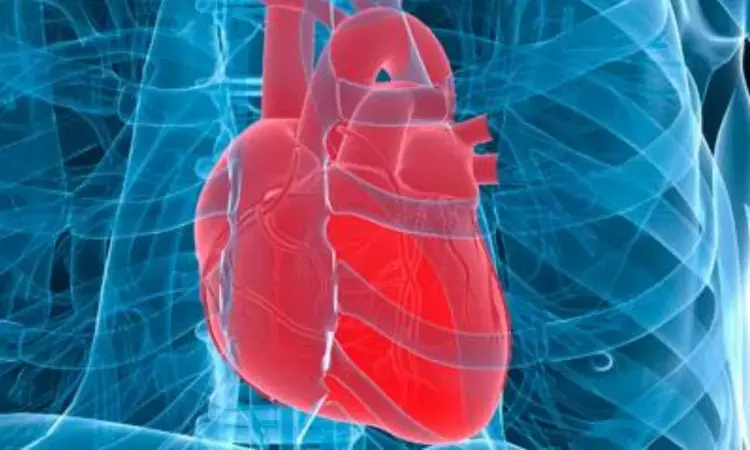- Home
- Medical news & Guidelines
- Anesthesiology
- Cardiology and CTVS
- Critical Care
- Dentistry
- Dermatology
- Diabetes and Endocrinology
- ENT
- Gastroenterology
- Medicine
- Nephrology
- Neurology
- Obstretics-Gynaecology
- Oncology
- Ophthalmology
- Orthopaedics
- Pediatrics-Neonatology
- Psychiatry
- Pulmonology
- Radiology
- Surgery
- Urology
- Laboratory Medicine
- Diet
- Nursing
- Paramedical
- Physiotherapy
- Health news
- Fact Check
- Bone Health Fact Check
- Brain Health Fact Check
- Cancer Related Fact Check
- Child Care Fact Check
- Dental and oral health fact check
- Diabetes and metabolic health fact check
- Diet and Nutrition Fact Check
- Eye and ENT Care Fact Check
- Fitness fact check
- Gut health fact check
- Heart health fact check
- Kidney health fact check
- Medical education fact check
- Men's health fact check
- Respiratory fact check
- Skin and hair care fact check
- Vaccine and Immunization fact check
- Women's health fact check
- AYUSH
- State News
- Andaman and Nicobar Islands
- Andhra Pradesh
- Arunachal Pradesh
- Assam
- Bihar
- Chandigarh
- Chattisgarh
- Dadra and Nagar Haveli
- Daman and Diu
- Delhi
- Goa
- Gujarat
- Haryana
- Himachal Pradesh
- Jammu & Kashmir
- Jharkhand
- Karnataka
- Kerala
- Ladakh
- Lakshadweep
- Madhya Pradesh
- Maharashtra
- Manipur
- Meghalaya
- Mizoram
- Nagaland
- Odisha
- Puducherry
- Punjab
- Rajasthan
- Sikkim
- Tamil Nadu
- Telangana
- Tripura
- Uttar Pradesh
- Uttrakhand
- West Bengal
- Medical Education
- Industry
Cardiovascular MRI best modality for evaluating suspected cardiac tumors: Study

MINNEAPOLIS/ST. PAUL - Cardiovascular magnetic resonance (CMR) is the best approach in evaluating patients with suspected cardiac tumors, researchers from the University of Minnesota Medical School have found in a large, multicenter first of its kind study. Their results prove that cardiovascular magnetic resonance (CMR) provides high accuracy and prognostic value for this purpose.
"This was important to study because, until now, there was no great data supporting current clinical practice of using CMR to investigate these patients," said lead author Chetan Shenoy, MBBS, MS, an associate professor in the Department of Medicine's Cardiovascular Division at the U of M Medical School. "For example, if CMR shows no cardiac tumor or mass, we do not do any further testing — we do not know if this is the right approach and how well CMR serves this purpose. In this study, we wanted to validate that clinical practice."
This multicenter study, published in the European Heart Journal, involved 903 patients from four institutions. Some of the key findings of the study are that:
CMR diagnosis was accurate in 98.4% of patients in the study;
CMR diagnosis is a powerful, independent predictor of death; and,
This prognostic value is incremental to clinical factors.
"These data provide the first large-scale validation of the clinical practice of using CMR to exclude a cardiac tumor and to diagnose the type of tumor," said Shenoy, who is also a cardiologist with M Health Fairview. "By demonstrating high accuracy and long-term prognostic value, our results confirm that CMR can be used as a 'one-stop-shop' for this clinical indication. We anticipate our findings will shape future guidelines, appropriateness documents and health policies on this topic."
Co-authors on the paper include John D. Grizzard and Marianna Zagurovskaya from Virginia Commonwealth University Medical Center; Dipan J. Shah, Mahwash Kassi and Michael J. Reardon from Houston Methodist Hospital; and Han W. Kim, Michele A. Parker and Raymond J. Kim from Duke University Medical Center.
Hina Zahid Joined Medical Dialogue in 2017 with a passion to work as a Reporter. She coordinates with various national and international journals and association and covers all the stories related to Medical guidelines, Medical Journals, rare medical surgeries as well as all the updates in the medical field. Email: editorial@medicaldialogues.in. Contact no. 011-43720751
Dr Kamal Kant Kohli-MBBS, DTCD- a chest specialist with more than 30 years of practice and a flair for writing clinical articles, Dr Kamal Kant Kohli joined Medical Dialogues as a Chief Editor of Medical News. Besides writing articles, as an editor, he proofreads and verifies all the medical content published on Medical Dialogues including those coming from journals, studies,medical conferences,guidelines etc. Email: drkohli@medicaldialogues.in. Contact no. 011-43720751


